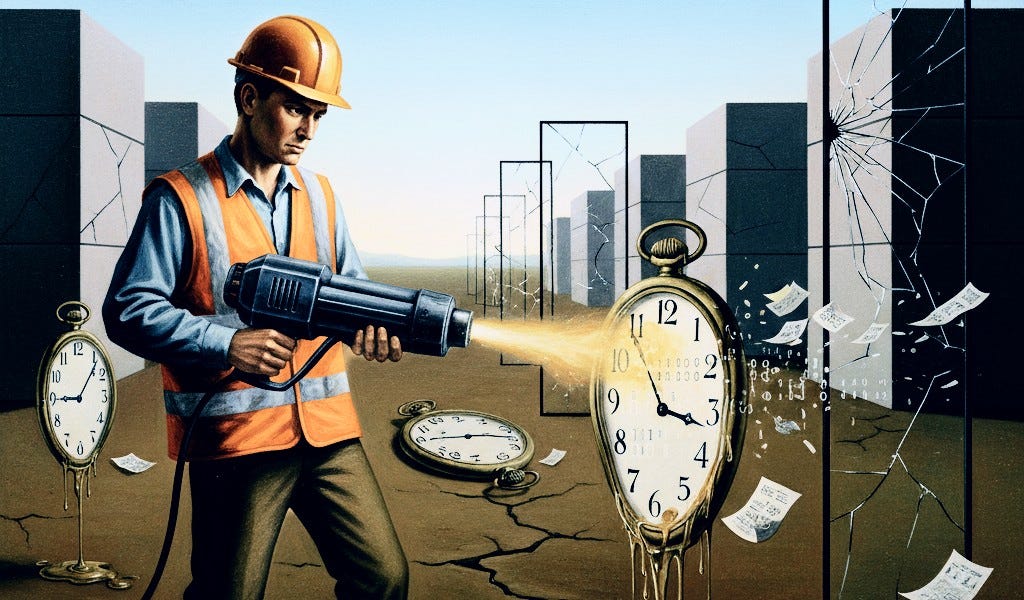The Right to Fuck Up
We replaced repair with disposal. It’s time to build a more human world.
To be human is to need room for mistakes: the ordinary, stupid, necessary kind that allow us to grow. It is the space to say the wrong thing, apologize, and learn; to fail at work without being branded unreliable; to change your mind and not lose your place in the world.
But that space is shrinking. Every error feels terminal, every stumble a signal to replace you. Forgiveness has become a private hobby; punishment, public infrastructure.
We call this progress, but it’s closer to corrosion. We’ve built systems that confuse accountability with perfection, replacing the hard work of repair with the clean efficiency of disposal.
Healthy systems expect error.
They survive by absorbing stress through redundancy, delay, or repair.
Brittle ones cannot bend. They push every failure downward onto the smallest, most disposable parts: workers, users, citizens.
The economy does it when one missed payment can lead to eviction.
Platforms do it when one post becomes a permanent verdict.
Institutions do it when one misstep erases belonging.
What looks like moral strictness is frequently just a matter of design choices.
We’ve engineered a world that offloads its own fragility onto people and then praises the survivors for their resilience.
Our systems embed punishment.
We won't fix this by making one another kinder. Modern systems don’t need cruelty; they need throughput. Punishment is laundered through procedure.
An HR form, an algorithmic ban, a credit score: each automates exclusion without anyone feeling responsible.
Harm travels faster than repair. We mistake this smooth escalation for justice, and call it efficiency.
When error is treated as total failure, repair becomes impossible.
There’s no feedback loop; just fallout.
You don’t learn; you comply. You don’t grow; you hide.
We built self-healing machines but not self-healing institutions.
A civilization that cannot metabolize its own errors will eventually choke on its performance metrics.
We must assert a moral right to be wrong.
This is not a right to cause harm or a license for impunity. It is the right to remain corrigible: the right to learn from an error, to repair what can be repaired, and to re-earn a place.
It is the fundamental difference between being held accountable and being treated as disposable.
When people can err and recover, trust compounds. When they cannot, fear does.
Error isn’t the opposite of progress; it may as well be its engine. But only if the system is designed to catch the fall without breaking the person.
We should see forgiveness not as a private virtue but as a public design parameter.
Resilient systems are not built for perfection; they are built for error. They have mechanisms for rollbacks, appeals, and do-overs.
This brings us to a simple, foundational question for any society:
Can we fuck up and still belong here?
If the answer is no, then the system we have built is not moral. It is merely brittle.
And brittleness is just cruelty with a cleaner interface.

